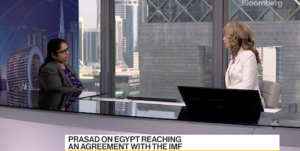This is a blog post from the Middle East Institute at Singapore’s NUS, following a presentation made to them about the Arab Firestorm on 19th Sep, 2013 (link to the original post is here).
According to Dr. Nasser Saidi, Founder and President of Nasser Saidi and Associates, the phrase ‘Arab Spring’ is a misnomer. Since 2011, the Middle East has been embroiled in a series of events that seem to increase in intensity and destructiveness; therefore, the “Arab Firestorm” is more apt. This unique take hints at the different perspective Saidi would provide during his talk. He calls for more emphasis on economic factors than socio-political elements, as any successful political transition requires economic reforms.
Prior to delving into the policies and reforms that need to be implemented, Saidi informs the audience of the challenges that the region has been facing, amongst them the strikingly uneven distribution of wealth and resources between oil importing countries and oil exporters, youth unemployment at 35%, and low female labour force participation rates—MENA being the lowest—in spite of the fact that women in MENA attain higher education than the men. Given the demographics and ‘youth bulge’, job creation is the top policy priority for Arab countries.
While the GCC countries are comparatively better off than the rest of the region, Saidi is quick to point out that they are not free from problems either. Their high dependence on oil threatens their fiscal sustainability, which can only be achieved if they diversify their sources of government revenues and partner with the private sector for job creation. Also, the GCC is faced with the urgent task of carrying out reform and structural change in order to reduce the likelihood of consumption and production patterns from being further distorted by energy subsidies.
In order to attain stability, Saidi proposes a number of transformations that the region needs to undergo in various sectors, such as education, empowerment of women, an orientation towards Asia and Emerging Market Economies in trade, investment and financial policies, and the establishment of an Arab Bank for Reconstruction and Development that would focus on infrastructure investment. He also recommends Singapore to take on an active role in this process by organizing forums on the politics and economics of transition so that MENA can draw lessons from the experience of Asian countries and emerging financial centres in the GCC can network with its Asian counterparts.
Despite the economic focus of the talk, Saidi was not gainsaying the relevance of other factors in the Arab uprisings. This is apparent from the inclusion of socio-demographic and political concerns in the MENAT (MENA + Turkey) Vulnerability Index that he introduces during the second half of his presentation. This chart “captures [most of the] factors in a quantitative index, measuring the magnitude and the differences in vulnerability and risk exposure across the countries in the region”. Turkey is included as it has a shared history with the rest of the Middle East, despite following a different trajectory after the fall of the Ottoman Empire. The results from the MENAT Vulnerability Index reveal that Saudi Arabia is next to high-risk states like Syria and Egypt, indicating that being relatively financially stable does not protect a country from being vulnerable to political discontent.





